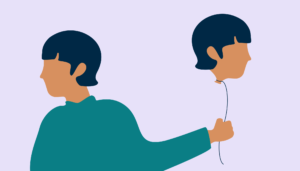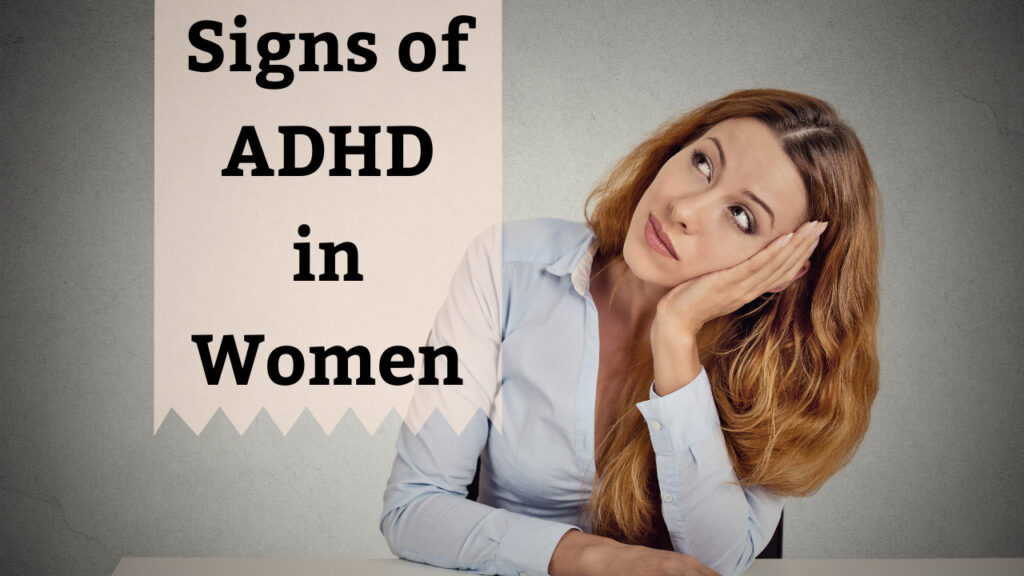Did you know that ADHD symptoms in women can be different than the symptoms seen in men? If you are a woman who is concerned that you may have ADHD, it is important to understand the signs and symptoms so that you can get the help that you need. In this blog post, we will discuss the most common symptoms of ADHD in women, as well as some of the challenges that they face. We hope that this information will help you to get started on your journey to better health.
Contents
What Is ADHD In Women?

ADHD in women is a real and serious condition that can have a profound impact on their lives. It is often misunderstood and underdiagnosed, which can lead to many problems down the road. Women with ADHD may have difficulty in school, at work, and in relationships. They may also suffer from anxiety, depression, and other mental health issues.
Sometimes, the symptoms of ADHD in women are chalked up to “just being emotional” or “hormones.” This is not the case. ADHD is a real, serious condition that should be taken seriously. If you think you may have ADHD, speak to your doctor. They will be able to give you a proper diagnosis and help you find the treatment you need.
There are many different treatments for ADHD, including medication, therapy, and lifestyle changes. The best course of treatment will vary from person to person. Medication can be very effective in managing the symptoms of ADHD, but it is not a cure-all. Therapy can help women with ADHD learn how to cope with their condition and make necessary changes in their lives. Lifestyle changes, such as exercise and a healthy diet, can also help reduce symptoms.
If you think you may have ADHD, don’t suffer in silence. Talk to your doctor and get the help you need. With proper treatment, you can lead a happy and successful life.
Different Common Symptoms of ADHD In Women
There are many different symptoms of ADHD in women, but some of the most common include:
Difficulty Paying Attention
One of the most common symptoms of ADHD in women is difficulty paying attention. This can manifest itself in many different ways. For example, you may find yourself daydreaming or getting easily distracted. You may have trouble completing tasks or following through on projects. You may also find that you’re constantly forgetful and losing things. Sometimes, this can be chalked up to “mom brain” or being busy, but it may be ADHD.
Hyperactivity
Another common symptom of ADHD in women is hyperactivity. This may manifest itself as restlessness, fidgeting, or an inability to sit still. You may feel like you’re always on the go and have trouble slowing down. This can make it difficult to focus on tasks and can be very draining. Sometimes, hyperactivity can be mistaken for anxiety or a busy lifestyle.
Impulsivity
Many women with ADHD also struggle with impulsivity. This may manifest itself as making impulsive decisions, acting without thinking, or being unable to control your emotions. You may find yourself speaking without thinking or doing things on a whim. This can lead to problems in all areas of life, from work to relationships. Sometimes, impulsivity can be chalked up to “being emotional” or “hormones,” but it may be ADHD.
Disorganization
Another common symptom of ADHD in women is disorganization. This may manifest itself as having a cluttered home or desk, being late for appointments, or forgetting to pay bills. You may find yourself constantly losing things or having difficulty completing tasks. This can be very frustrating and can lead to problems in all areas of life.
Mood swings
Many women with ADHD also experience mood swings. This may manifest itself as feeling happy one minute and angry or sad the next. You may find yourself crying for no reason or getting easily irritated. These mood swings can be very confusing and difficult to deal with. Sometimes, they’re chalked up to “hormones” or “being emotional,” but they may be symptoms of ADHD.
Restlessness
Many women with ADHD also struggle with restlessness. This may manifest itself as an inability to sit still, fidgeting, or pacing. You may find yourself constantly moving or tapping your foot. This can make it difficult to focus on tasks and can be very draining. Sometimes, restlessness can be mistaken for anxiety or a busy lifestyle.
Constant Worrying
Many women with ADHD also deal with constant worrying. This may manifest itself as anxiety, stress, or paranoia. You may find yourself always worrying about things that might go wrong or obsessing over details. This can be very draining and can make it difficult to focus on tasks. Sometimes, worry can be chalked up to “mom brain” or a busy lifestyle, but it may be a symptom of ADHD.
Procrastination
Procrastination is another common symptom of ADHD, and it can cause a lot of problems. If you have ADHD, you may find yourself putting off tasks that you don’t want to do or that seem too difficult. This can lead to missed deadlines, unfinished projects, and a lot of stress.
Anxiety and Depression
ADHD can also be linked to anxiety and depression. This may be because ADHD can make life more difficult and cause problems in relationships and at work. It can also be caused by the medications used to treat ADHD, which can have side effects like anxiety and depression.
Do ADHD Symptoms In Women affect, Anyone?

ADHD affects one in ten children and more boys than girls are diagnosed. But, just because it’s more commonly diagnosed in boys, that doesn’t mean it can’t or doesn’t affect girls. Recent studies suggest that the ratio of boys to girls with ADHD may be closer to three-to-one.
There’s a lot we still don’t know about how ADHD manifests itself in women and girls. We do know that the symptoms tend to be different from those in boys and men. For one thing, hyperactivity is less likely to be a problem for adult women with ADHD than it is for men or boys. Instead, they’re more likely to have problems with inattention and disorganization.
ADHD can cause problems in all areas of life, but some of the most common problems women with ADHD face include:
Difficulty completing tasks
One of the most frustrating things about ADHD is that it can make even the simplest tasks seem impossible. If you have ADHD, you may find yourself starting a project but never finishing it, or taking forever to complete something that should only take a few minutes.
This can be especially problematic at work, where completing tasks on time is often essential to success. It can also be tough on your personal life, causing you to miss deadlines or forget important commitments.
Forgetfulness
An ADHD brain is often like a sieve, forgetting things that seem like they should be easy to remember. This can be anything from where you put your keys to important deadlines at work.
Disorganization
ADHD can make it hard to keep track of everything in your life. You may find yourself constantly losing important papers or forgetting about appointments. Your home or office may be cluttered and disorganized, making it hard to find things when you need them.
This disorganization can cause problems at work, at home, and in your personal life. It can be tough to keep track of everything when you have ADHD, but some strategies can help, including using a planner or setting up reminders on your phone.
Low-self Esteem
Anxiety and depression are common in adults with ADHD, and they can lead to low self-esteem. It’s hard to feel good about yourself when you’re constantly forgetting things or feeling like you’re not doing as well as everyone else.
Sometimes, low self-esteem can lead to risky behaviors, like substance abuse or promiscuous sex. If you’re struggling with low self-esteem, it’s important to get help from a therapist or counselor who can help you build up your confidence.
Relationship Issues
An ADHD brain can be a tough one to live with, and it’s not uncommon for people with ADHD to have problems in their relationships. If you have ADHD, you may find yourself constantly arguing with your partner or having difficulty communicating.
You may also find that your ADHD symptoms make it hard to keep a job or maintain friendships. It’s important to get help if you’re struggling in your relationships, so you can learn how to better manage your ADHD and build healthier, more fulfilling connections.
Poor Management Skills
Some of the symptoms of ADHD, like disorganization and forgetfulness, can make it hard to manage your time and resources. This can lead to problems at work, like missed deadlines or lost files.
It can also cause problems in your personal life, like being late for appointments or forgetting to pay bills on time. If you’re struggling with poor management skills, some strategies can help, including using a planner or setting up reminders.
Conclusion
ADHD symptoms in women can be tricky to spot. They may not look like the stereotypical “hyperactive” behaviors often associated with the disorder. Instead, they may manifest as disorganization, forgetfulness, or chronic procrastination. If you think you may have ADHD, it’s important to talk to your doctor. He or she can help you determine if your symptoms are due to ADHD or another condition.
There is no one-size-fits-all approach to treating ADHD. However, common treatments include medication, therapy, and lifestyle changes. Medication can help improve focus and concentration. Therapy can teach you how to better manage your symptoms and make positive lifestyle changes.
Hope this article was of help to you! If you are suffering from ADHD, you may seek help from Therapy Mantra. We have a team of highly trained and experienced therapists who can provide you with the tools and skills necessary for overcoming ADHD. Contact us today to schedule an online therapy or download our free Android or iOS app for more information.


